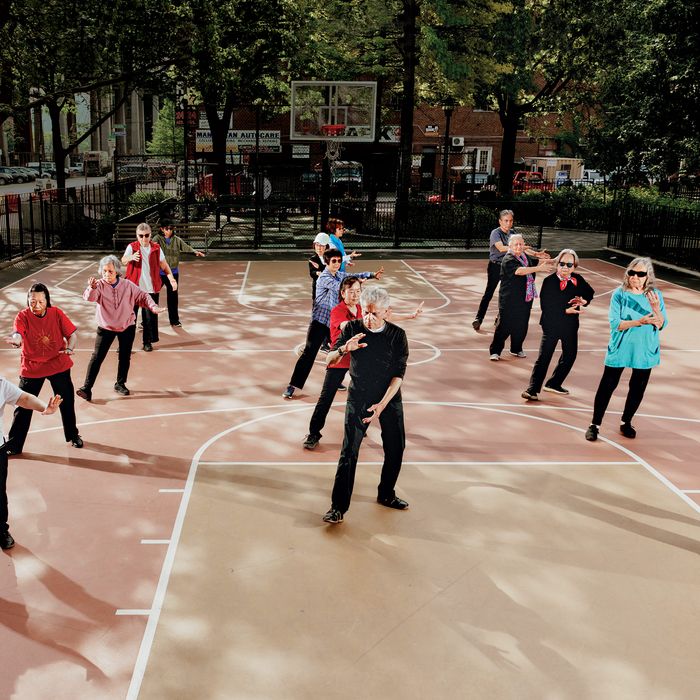
After Grand Street Settlement, a community center on the Lower East Side, suspended its senior programs in March 2020, 74-year-old Kay Mantin missed the daily t’ai chi classes she had attended for the previous 11 years. “T’ai chi helps with memory,” Mantin says. “It’s important, at our age, to keep our minds alert.” A few months into lockdown, Mantin got a call from her friend and neighbor Alice Cheng, a volunteer instructor at Grand Street. Many of her students also lived in their apartment complex; why not organize a t’ai chi class outdoors? For the past 15 months, the class has gathered nearly every morning at eight (in the winter, they wore puffy jackets). For one hour, they practice their moves in coordination, unfazed by the sound of the train passing through the Williamsburg Bridge above.
Even as bars and restaurants have reopened for business, New York’s senior centers have stayed closed. To combat loneliness and boredom, members of one senior center in Washington Heights have been gathering at each other’s houses for bingo games; in other neighborhoods, some elderly residents linger outside their centers after getting their vaccine for a chance to socialize. On June 1, Mayor de Blasio announced that New York’s 249 senior centers could finally reopen on June 14, but the date seemed tenuous: Providers had only a couple of weeks to figure out how to put new health-and-safety protocols in place, and they didn’t know where the funding for equipment like new HVAC units could come from. For now, Mantin and her friends are keeping up their sessions, an antidote to pandemic-induced loneliness. “We cannot live without t’ai chi; otherwise, we’re gonna slow down and get shorter and older,” Orlando Sánchez says. “That’s how we keep moving.”
More From This Series
- Give the Liberty Their Crown
- U.S. Women’s Soccer Fans Are Having a Moment
- Pilgrimage to the Meadowlands (Taylor’s Version)




